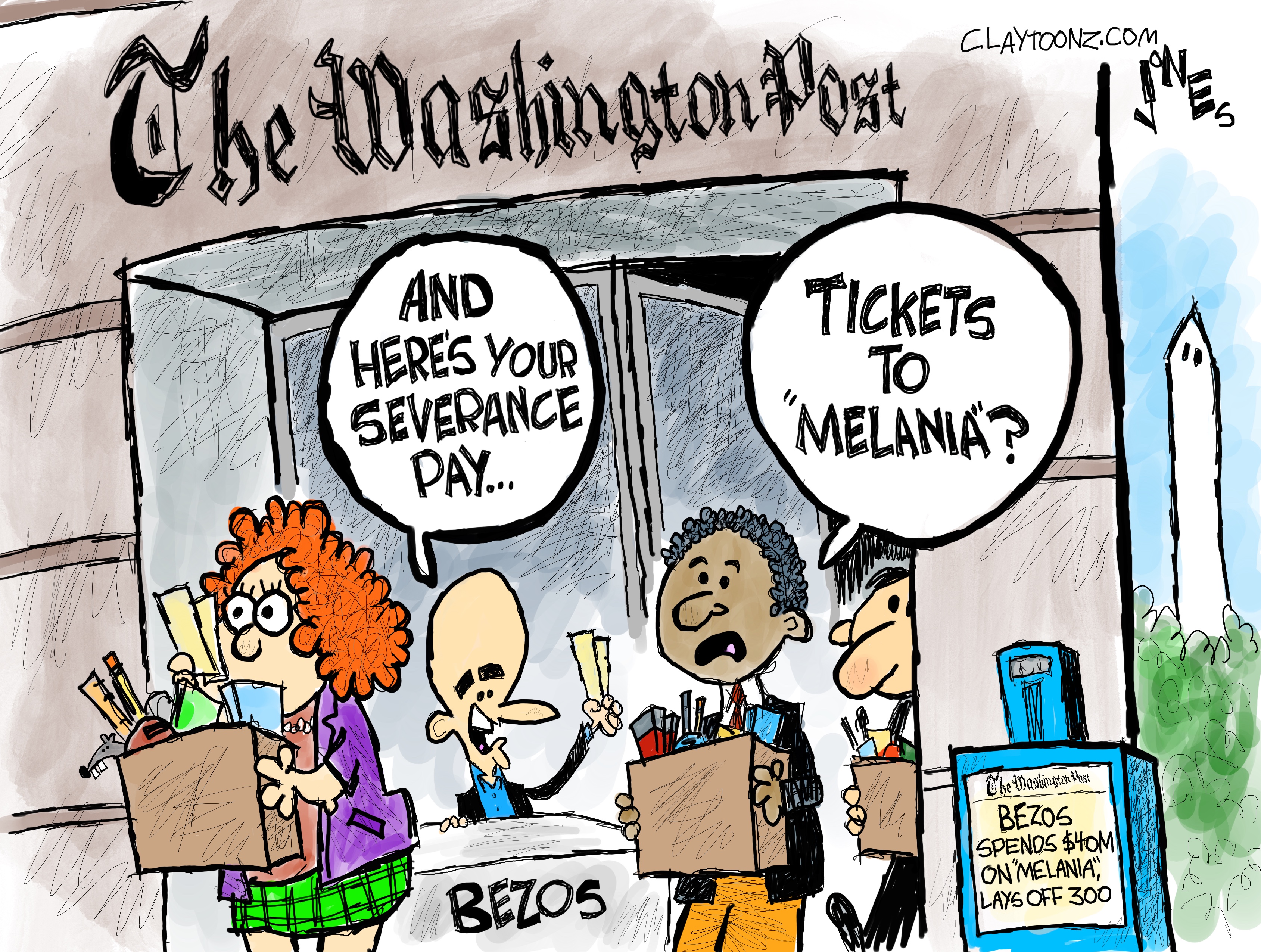QAnon goes mainstream
How did a nonsensical conspiracy theory take hold in the GOP?

A free daily email with the biggest news stories of the day – and the best features from TheWeek.com
You are now subscribed
Your newsletter sign-up was successful
GOP candidates and Trump supporters are pledging allegiance to a nonsensical conspiracy theory. Here's everything you need to know:
What is QAnon?
It's a conspiracy theory claiming that world leaders, Democrats, and "deep state" U.S. intelligence officers are all involved in a global child sex trafficking ring that President Trump and his supporters are working to expose and destroy. Named for Q, a supposed military official who began posting anonymously on fringe message boards in 2017, QAnon promises a "Great Awakening" for patriots, who get a steady diet of "bread crumbs" on the internet — clues revealing aspects of this global plot. Thousands of Americans have enlisted as believers in QAnon, which the FBI calls a domestic-terror threat. Michael Flynn, the former national security adviser who initially pleaded guilty to lying about his contacts with Russia, took the Q oath on a YouTube video on July 4, ending by reciting the slogan "Where we go one, we go all." Trump's son Eric posted the same slogan on Instagram this summer. Before the pandemic ended Trump's rallies, attendees had begun displaying "Q" on clothing and paraphernalia, and calling themselves Trump's "soldiers on the ground." At least 11 GOP candidates for Congress this year openly support QAnon.
The Week
Escape your echo chamber. Get the facts behind the news, plus analysis from multiple perspectives.

Sign up for The Week's Free Newsletters
From our morning news briefing to a weekly Good News Newsletter, get the best of The Week delivered directly to your inbox.
From our morning news briefing to a weekly Good News Newsletter, get the best of The Week delivered directly to your inbox.
Like who?
Jo Rae Perkins, the Oregon Republican nominee for the U.S. Senate. During her May victory speech, Perkins said, "I stand with Q and the team. Thank you, Anons....Together, we can save our republic." This year, 59 Senate and congressional candidates expressed some form of Q support and amassed nearly 600,000 votes, The Washington Post reports. While most nominees like Perkins are likely to get trounced in November, at least two are expected to win House seats. Lauren Boebert, who defeated incumbent Scott Tipton in the Colorado primary, has said, "I hope [Q] is real." Marjorie Taylor Greene, the front-runner in a GOP runoff in Georgia this month, calls QAnon "a once-in-a-lifetime opportunity to take this global cabal of Satan-worshiping pedophiles out." She's gotten endorsements from Trump and Rep. Jim Jordan of Ohio.
How did QAnon start?
On Oct. 28, 2017, a new user calling himself Q posted on 4chan, a right-wing site favored by white supremacists. "Q" was a reference to the clearance level for top-secret material such as nuclear weapons designs. Q predicted the imminent arrest of Hillary Clinton and used conspiratorial clichés like "Follow the money." His prophecies grew out of PizzaGate, the debunked theory that Clinton was running a child sex dungeon out of a popular Washington, D.C., pizzeria. (In 2016, a North Carolina man armed with two loaded guns and a knife went to the pizza place to free the children, only to discover the building had no basement and there were no kids.) Q has since posted hundreds of times on 4chan, 8chan, and 8kun, using a password-protected identifier to thwart imitators.
A free daily email with the biggest news stories of the day – and the best features from TheWeek.com
What are his beliefs?
Q prophesies an upcoming event called The Storm, when Trump will send thousands of traitorous elites to Guantánamo Bay. One absurd theory claims John F. Kennedy Jr. faked his fatal plane crash in 1999 and could emerge this year as Trump's running mate. Believers have been inspired to plot kidnapping "raids," and one follower, Anthony Comello of New York City, says Q inspired him to murder mafia boss Francesco Cali. Q's apocalyptic writings increasingly echo evangelical Christian beliefs about End Times, with Trump described as a messiah-like figure. "I feel like God led me to Q," said Laurie Shock, 57, of Ohio, who has spent up to six hours a day researching the theory.
How many followers are there?
It's impossible to say for sure, but social media indicates Q is exploding into the mainstream. Twitter recently banned 7,000 accounts that posted QAnon material, and Facebook is reportedly planning a similar crackdown on its 175-plus QAnon groups with a combined 1.4 million members. Q indoctrinator David Hayes has 377,000 Twitter followers, and his YouTube videos explaining the basic tenets have 33 million views. Candidates are eager to tap into this audience, even if they think QAnon is "a bunch of crap," said Sam Williams, a Republican who lost a House runoff election in Texas last month after retweeting Q hashtags and slogans. "I did that to gain followers," Williams said.
Can't Q be debunked?
A mountain of evidence against QAnon has piled up, but it seems to have made no difference: Hillary Clinton, for example, has not been arrested. Believers find affirmation in events like the arrest of financier Jeffrey Epstein on child sex trafficking charges. They're like "flat-earth adherents," said Alice Marwick, a University of North Carolina researcher, "who have a different way to interpret the world, which colors everything they see." For those who view Q as a religion, their beliefs by definition can't be falsified, while their deity continues to send signs to reinforce their faith. "He talks to us in codes," a woman named Diane told Vanity Fair last November after a Trump rally in Sunrise, Florida. "It's all about God! All about spiritual warfare. Trump will tell you that. Over and over."
Is Trump Q?
Some QAnon followers believe Trump himself is Q — the leader posting cryptic prophecies on message boards. Weeks before Q's first post, in 2017, Trump stood for a photo with military leaders at the White House and asked reporters, "You guys know what this represents?" He proceeded to trace an incomplete circle in the air with his index finger — the letter Q, supposedly — and said, "Maybe it's the calm before the storm." Followers believe Trump's randomly capitalized tweets contain secret messages, as when he tweeted, "I am giving consideration to a QUARANTINE" in March, and a day later tweeted, "I am a great friend and admirer of the Queen." Delete most letters and both tweets read "I am...Q." One thing is certain: Trump has retweeted dozens of QAnon hashtags and released a campaign video last year that showed two supporters holding signs marked with Qs. In March, Trump retweeted a meme of him playing the violin, captioned with the QAnon slogan "Nothing can stop what is coming." Trump added, "Who knows what this means, but it sounds good to me!"
This article was first published in the latest issue of The Week magazine. If you want to read more like it, you can try six risk-free issues of the magazine here.
-
 Political cartoons for February 6
Political cartoons for February 6Cartoons Friday’s political cartoons include Washington Post layoffs, no surprises, and more
-
 Trump links funding to name on Penn Station
Trump links funding to name on Penn StationSpeed Read Trump “can restart the funding with a snap of his fingers,” a Schumer insider said
-
 US, Russia restart military dialogue as treaty ends
US, Russia restart military dialogue as treaty endsSpeed Read New START was the last remaining nuclear arms treaty between the countries
-
 The billionaires’ wealth tax: a catastrophe for California?
The billionaires’ wealth tax: a catastrophe for California?Talking Point Peter Thiel and Larry Page preparing to change state residency
-
 Bari Weiss’ ‘60 Minutes’ scandal is about more than one report
Bari Weiss’ ‘60 Minutes’ scandal is about more than one reportIN THE SPOTLIGHT By blocking an approved segment on a controversial prison holding US deportees in El Salvador, the editor-in-chief of CBS News has become the main story
-
 Has Zohran Mamdani shown the Democrats how to win again?
Has Zohran Mamdani shown the Democrats how to win again?Today’s Big Question New York City mayoral election touted as victory for left-wing populists but moderate centrist wins elsewhere present more complex path for Democratic Party
-
 Millions turn out for anti-Trump ‘No Kings’ rallies
Millions turn out for anti-Trump ‘No Kings’ ralliesSpeed Read An estimated 7 million people participated, 2 million more than at the first ‘No Kings’ protest in June
-
 Ghislaine Maxwell: angling for a Trump pardon
Ghislaine Maxwell: angling for a Trump pardonTalking Point Convicted sex trafficker's testimony could shed new light on president's links to Jeffrey Epstein
-
 The last words and final moments of 40 presidents
The last words and final moments of 40 presidentsThe Explainer Some are eloquent quotes worthy of the holders of the highest office in the nation, and others... aren't
-
 The JFK files: the truth at last?
The JFK files: the truth at last?In The Spotlight More than 64,000 previously classified documents relating the 1963 assassination of John F. Kennedy have been released by the Trump administration
-
 'Seriously, not literally': how should the world take Donald Trump?
'Seriously, not literally': how should the world take Donald Trump?Today's big question White House rhetoric and reality look likely to become increasingly blurred